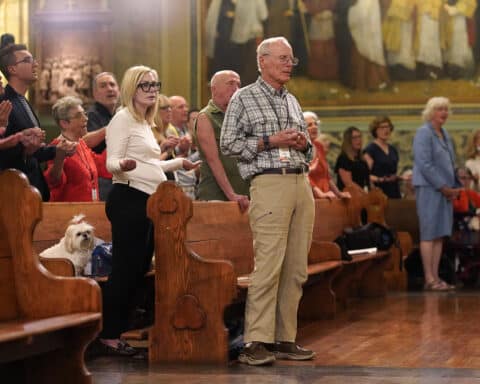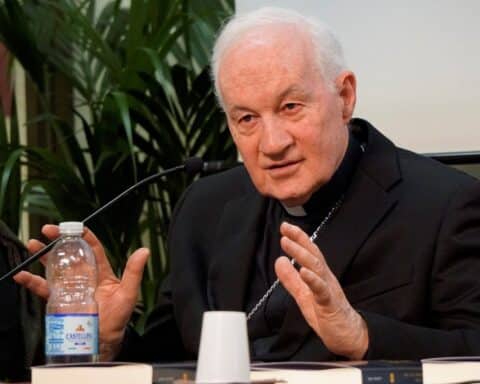
In 2012, when then French president François Hollande announced that his government would pursue measures to redefine marriage to include same-sex couples, the nonreligious, nonsectarian protest movement La Manif turned out some 200,000 demonstrators in Paris at its first rally on Nov. 17, 2012. In March 2013, more than 1 million people, according to the organization, mobilized across three different gatherings in Paris alone. They were joined by thousands of others at various locations throughout the country.
While a law legalizing same-sex marriage in France was passed in May 2013, La Manif continues to work to overturn the decision. Unlike the legal situation in America, which directly redefined marriage in the Obergefell v. Hodges Supreme Court decision, French law had previously accorded some personal and civil rights to couples without regard for their sex through civil unions through the pacte civil de solidarité (civil solidarity pact).
Despite losing, for the time being, the debate about the question of marriage in French law, La Manif has made an argument that was not made well in the public square in America. “Based on the father/mother/child relationship, the family structure favors the renewal of ages and the stability of society,” states the website of La Manif Pour Tous. Clearly placing the best interests of children at the center of public debate, La Manif argues well that children are not commodities to be traded and that mothers and fathers contribute to the public good by the raising of their children.
“A man and a woman united in marriage, together with their children, form a family,” says the Catechism of the Catholic Church. “This institution is prior to any recognition by public authority, which has an obligation to recognize it” (CCC 2202). The family is the fundamental unit of society. Echoing the language of the Church, La Manif insists, “The family is the fundamental foundation of any society: the source of its human, cultural and economic wealth; an eminent place of solidarity, dignity, freedom and love.”
By contrast, the U.S. Senate’s Respect for Marriage Act puts the terms of debate on a contest of rights. Reacting to the Senate’s Nov. 16 decision to advance the bill, Cardinal Timothy Dolan of New York pointed out the deficiencies of the bill concerning its protections for religious liberty. The cardinal said, “In any context in which conflicts between religious beliefs and same-sex civil marriage arise, the Act will be used as evidence that religious believers must surrender to the state’s interest in recognizing same-sex civil marriages.”
In the United States, efforts to defend the sanctity of marriage as a privileged union which exists between one man and one woman seemed to rely mostly on traditional religious beliefs. What La Manif has successfully done is introduce into the larger political conversation considerations about why the sacred union of one man and one woman is so unique: because this union can create children.
Children are the future of a society. They are also society’s most vulnerable members. In service to the common good, they must be protected and their care privileged. La Manif argues, “Because it requires parents to provide for the moral and material direction of the family as well as the education of the children and the preparation of their future, marriage also protects the fruit of their love.” On this account, civil marriage is not about the freedom to love another person; rather civil marriage is about protecting the defenseless, whether spouse or child.
In his encyclical letter Laudato Si’, Pope Francis warned against the effects that technology will have on our social institutions. “The social dimensions of global change include the effects of technological innovations on employment, social exclusion, an inequitable distribution and consumption of energy and other services, social breakdown, increased violence and a rise in new forms of social aggression, drug trafficking, growing drug use by young people, and the loss of identity.” Redefining marriage is the first step to divorcing the parent-child relationship altogether.
Father Patrick Briscoe, OP, is editor of Our Sunday Visitor. Follow him on Twitter @PatrickMaryOP.





